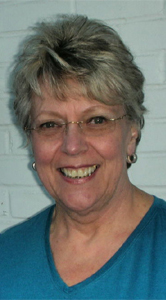Study Examines Social Work Programs and Sexual Orientation

CSWE Executive Director Julia Watkins
The Council on Social Work Education and Lambda Legal on Nov. 3 released results of a study on sexual orientation and gender expression in social work programs. The study sought to find how prepared students to serve lesbian, gay, bisexual and transgendered youth in out-of-home care. “The results of this study make it clear that we as a profession have integrated sexual orientation-related content into curricular offerings, but we can do more,” CSWE Executive Director Julia M. Watkins said.
| Leave A CommentAdvertisement
6 Comments
Leave a Comment
You must be logged in to post a comment.



I am thankful that more research is being funded on LGBT issues in social work. As a recent graduate from a school of social work, I know there were a few classes that addressed LGBT issues but they rarely related to youth/foster care/adoption. Even more distressing — many fellow social work students expressed extreme bias against LGBT people. So instead of enhancing the educational opportunities, it restricted them. Social workers need to be accepting and nonjudgmental of all people and aware of personal bias in order to best serve our clients. I believe the social work profession has a long way to go in developing programs and serving the LGBT community to our highest potential, but I also believe we will get there!
I too am thankful that more research is being done in this important area. My capstone project for the MSW examined the attitudes of Social Work Educators in the United States in accredited (CSWE) BSW and MSW programs toward gay men and lesbians. As Ms. Watkins suggests, “we can do more.”
In reponse to Kurtis:
Where is your MSW program? I am at Virginia Commonwealth University’s Alexandria Campus, and we have several LGB students, some LG faculty, and as a program are VERY focused on social justice and oppression at all levels.
I have found my colleagues to be warm, acceptaing and very open to LGBT individuals. I guess it depends on what part of the country in which you have studied.
We all have bias, but becoming aware of it and not allowing it to interfere with our work is paramount.
@Bryan Norman
The school is University of Texas at Arlington. I agree with you completely. We do all have personal bias and it is crucial that we identify our own bias in order to prevent it from interfering with our work. I do not think the school I attended appropriately addressed this issue as many of the masters level students actually stated, “I will not work with LGBT clients.” I believe that is completely inappropriate as it violates the NASW Code of Ethics and paints a very poor image of our profession — not to mention the effect it has on the LGBT population.
You are correct in saying that it depends on where you are geographically in the country. Dallas is the buckle of the Bible Belt and therefore many people hold unaccepting views of LGBT people.
And yes, I have spoken with the school about addressing this issue. We’ll see.
@ Kurtis Young
I disagree with your statement that it’s unethical for an MSW to state that they will not work with LGBT clients. If a social worker understands that their personal values system makes them too biased to effectively work with LGBT clients, then I think it is MORE ethical for them to be upfront about it, rather than attempt to provide services to a population they are inherently uncomfortable with, especially as a mental health clinician who will get to know the client intimately. Sometimes tabula rasa has limits.
I think as a professional field it is important for us to challenge one another to stretch our personal comfort zones and increase our understanding of diverse populations, whether the issue is race, class, disability or gender identity/orientation. My program at the University of Michigan did exactly that, inspiring and enabling me to embrace working with LGBT people, which I was initially uncertain and uncomfortable about. As we work towards inclusiveness for all, I think the ethical and professional stance to take is to practice charity and compassion towards one another as professionals, as well as our clients.
I do believed that having that kind of orientation is one of the main factors to be able to make others to accept all kinds of sexualities. That is one kind of social works that must be promoted every where in this world.